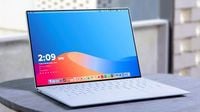In a significant move to protect user privacy, Apple has issued a warning to iPhone users, urging them to delete certain apps that could pose a threat to their personal information. This alert comes amidst growing concerns over privacy violations and data tracking by popular applications.
Apple's warning particularly highlights the use of Google Chrome, which the tech giant suggests could compromise user privacy. A video titled "Privacy on iPhone | Flock" has been released to illustrate this point. Drawing inspiration from Alfred Hitchcock's classic 1963 film "The Birds," the video depicts users browsing the internet with Chrome being surveilled by omnipresent cameras, akin to birds attacking. In stark contrast, switching to Safari is portrayed as a protective measure, where these intrusive cameras explode and cease to track users.
The timing of Apple’s warning is particularly striking, as it follows Google's announcement that it will not eliminate third-party cookies in Chrome as previously promised. This decision has reignited discussions about user privacy online, with Apple taking the opportunity to promote Safari as a browser that genuinely protects users' privacy.
According to the video, while Chrome does allow users to block third-party cookies, Safari excels in this area by doing it automatically. Apple’s marketing strategy seems clear: they are positioning Safari as the safer alternative, especially in light of Google's previous privacy failures, particularly with its Federated Learning of Cohorts (FLoC) initiative, which aimed to enhance privacy but ultimately fell short.
Elly Hancock from Private Internet Access supports Apple’s stance, stating, "Safari is the best choice for privacy and security." This endorsement reinforces the narrative that, despite Chrome's superior speed and performance, Safari is the better option for users concerned about data protection.
Apple's recommendation for iPhone users is to switch to Safari to ensure maximum security and to remove Chrome from their devices to mitigate privacy risks. This advice comes at a time when users are becoming increasingly aware of the potential dangers associated with data tracking and personal information leaks.
Meanwhile, in a separate but related development, Microsoft has introduced a new feature in Windows that has raised eyebrows regarding user privacy. The feature, named "Recall," is designed to assist users in managing their digital lives by capturing screenshots of their activities. However, it has sparked concerns about data collection and user consent.
Earlier this year, Microsoft had quietly blocked certain solutions that allowed the installation of Windows 11 on unsupported computers, pushing users to upgrade to the latest version. This move has left many users confused, particularly as they now face new features that could potentially infringe on their privacy.
The Recall feature operates on Copilot+ computers and utilizes Intel processors. It captures screenshots to help users keep track of their digital interactions. Microsoft claims that this feature will be turned off by default, allowing users to opt-in rather than being forced to participate.
Jake Moore, a security advisor at Big Brother Watch, commented on the implications of this feature, stating that while users will have control over the screenshots they capture, there is still a risk of accumulating a substantial database of sensitive information. He emphasized the need for users to be cautious, not only in protecting their own privacy but also that of others.
Moore also noted that although Microsoft has made efforts to enhance user control over data collection, the continuous capture of screenshots could still pose a threat to privacy, especially in sensitive contexts such as online banking. Users are advised to be vigilant and potentially avoid applications or websites that might excessively collect data.
Microsoft reassures users that screenshots will only be accessible after they provide biometric data or a PIN for security purposes. Additionally, users can set a time limit for how long screenshots are stored before they are automatically deleted. However, the feature will be enabled by default, requiring users to actively choose to disable it if they do not wish to participate.
As the tech landscape continues to evolve, both Apple and Microsoft are grappling with the balance between enhancing user experience and ensuring privacy. Apple’s push for Safari as a privacy-centric browser contrasts sharply with Microsoft’s controversial Recall feature, highlighting the ongoing debate over data collection practices in the tech industry.
In conclusion, as privacy concerns become increasingly paramount in the digital age, users must remain informed about the tools they use and the potential implications for their personal information. Both Apple and Microsoft’s recent moves serve as a reminder of the importance of protecting privacy in an era where data is often seen as a commodity.




